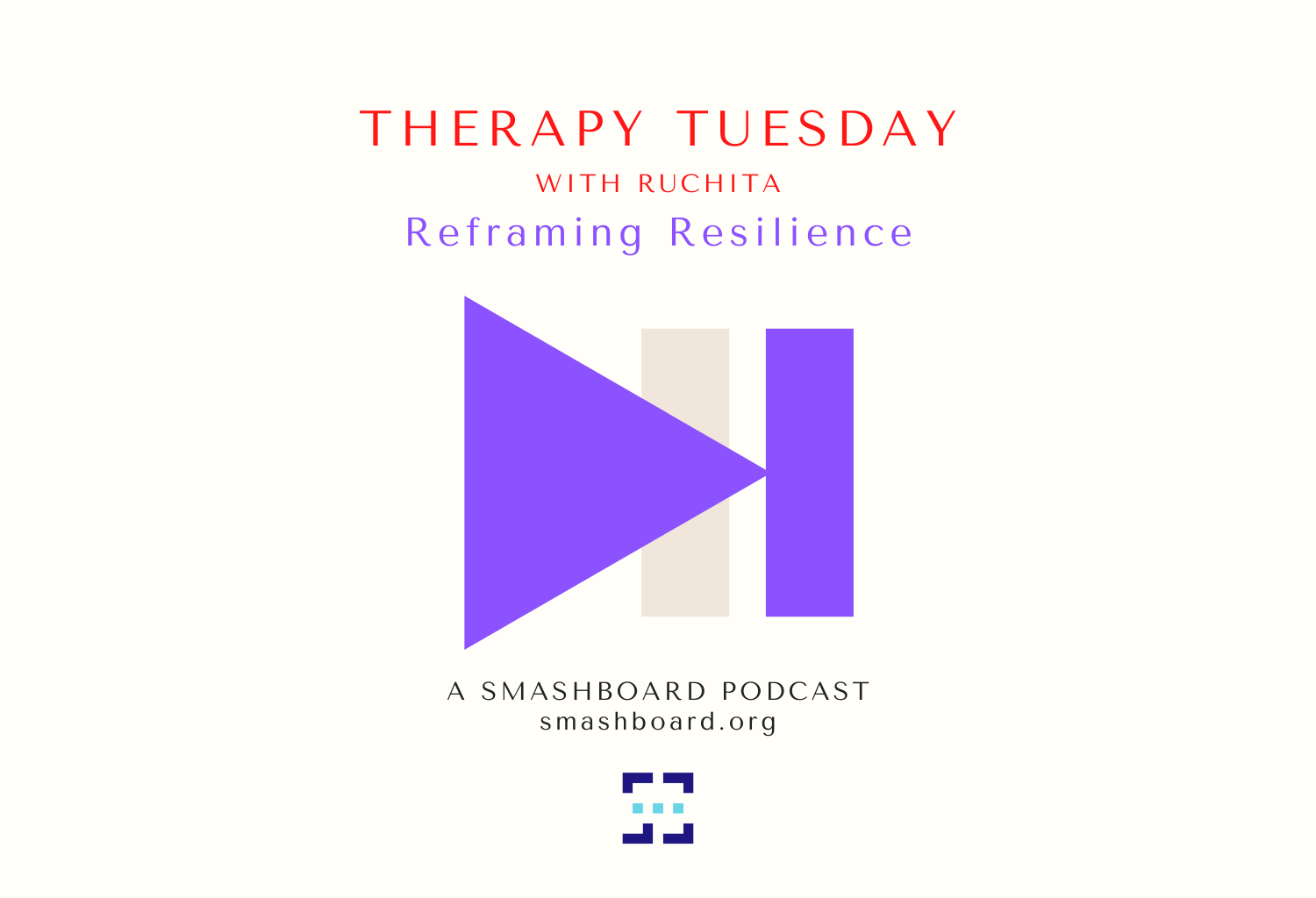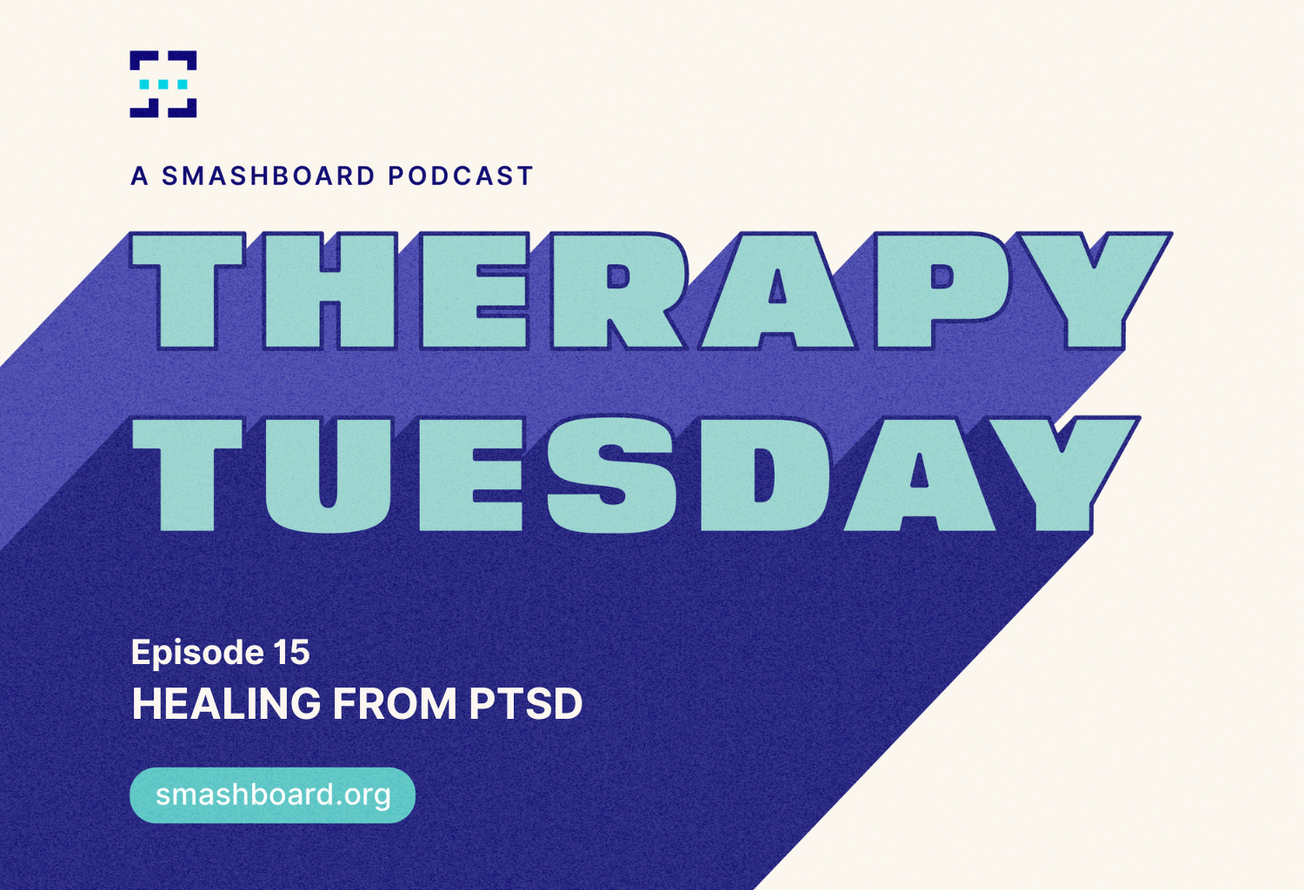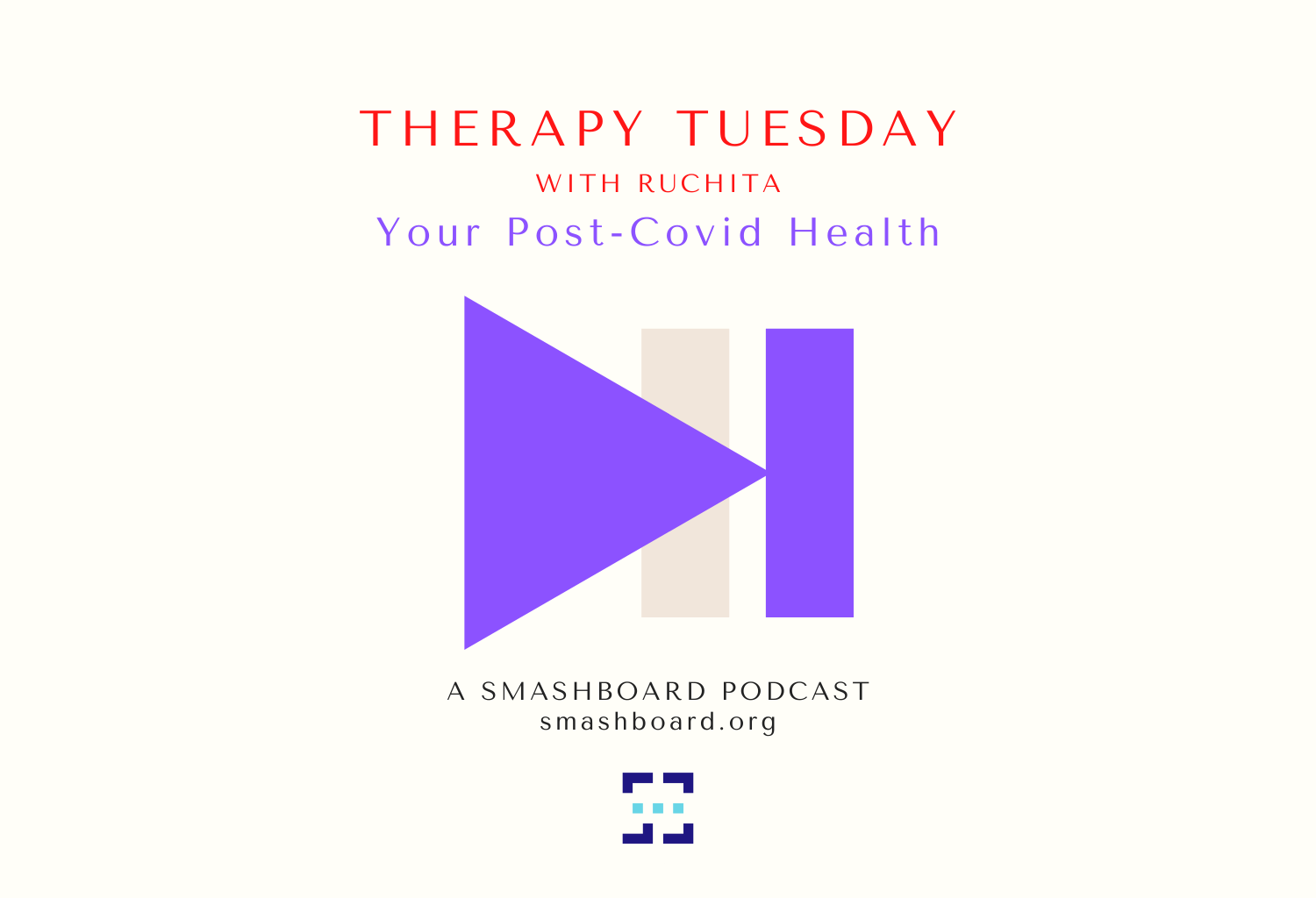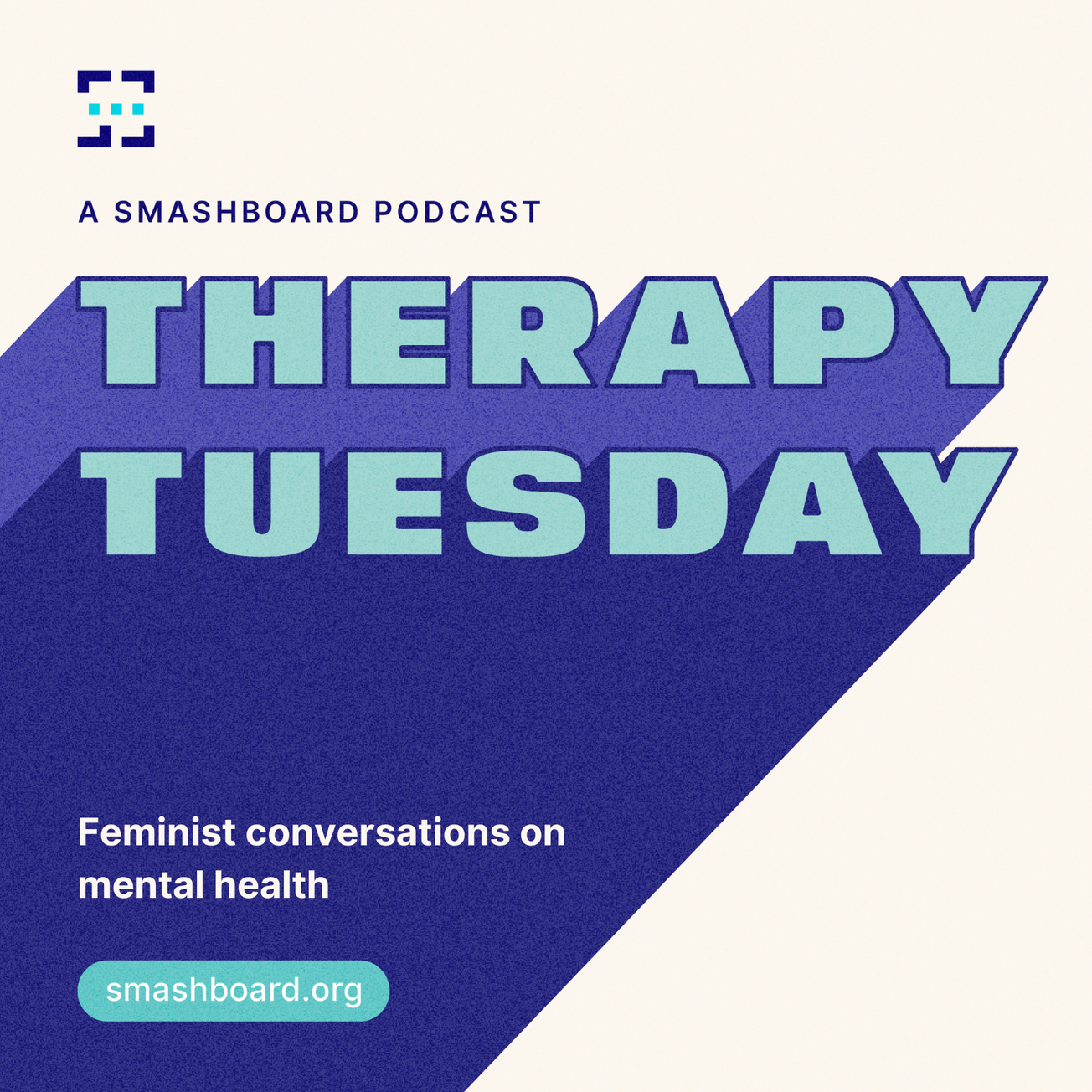Listen to our feminist mental health podcast on your favourite platform. Links here. Please do rate us! And give us a thumbs up/like/star. Have a great Tuesday!
Credits
Host: Ruchita Chandrashekar
Audio Mix and Edit: Depot Records
Scroll down to the end for the full transcript.
APPLE PODCASTS
GOOGLE PODCASTS
SPOTIFY
FULL TRANSCRIPT OF THIS EPISODE:
Hi, this is Therapy Tuesday, Smashboard’s mental health podcast and I am your host Ruchita Chandrashekar. I am a behavioural health researcher and psychologist with a specialisation in trauma and post-violence recovery, and this podcast has been created for people who are looking to have conversations around mental health from a feminist perspective. Please remember this podcast aims to be an educational resource and is not a substitute for therapy or treatment.
Imagine you’re swimming in the sea. At first, the waves seem manageable, enjoyable, even. But as you continue, you notice the currents getting stronger. You recognise the power of the sea and an unavoidable set of challenges that lie between you and the shore. Anxiety kicks in and your body shifts to fight or flight. You try your best to create adaptive strategies to survive—you get creative in your approaches, look around for assistance, and do everything in your power to stay alive—and it works. In fact, over time, you might even be a little more confident in your ability to survive in the sea. This is resilience.
Often born out of survival, resilience can be thought of as the ability to reflectively recognise the tools, support systems, and strategies that assist us in the face of adversity. Resilience is not the absence of distress. Despite this, the feelings that arise from it, such as anger, anxiety, grief, disappointment (all common to distress) often get villainised. Every feeling response serves a purpose—anger helps in identifying injustice, anxiety is a protective feeling response, and grief emphasises the value in what we’ve lost. The current discourse around resilience, however, often ignores this. People often say that growth comes from difficult places, but it’s important to ask: How much of that growth have we chosen? And how much is thrust upon us? Resilience and well-being intersect with each other. A holistic sense of well-being encompasses our physical and mental health, emotional state, and the socio-economic structures and communities we are a part of. Stress on any of these aspects can create the need to build resilience. But when we espouse resilience as the only option, we might be doing further damage. Phrases such as ‘you can do whatever you set your mind to’, ‘you can control your mind’, or ‘push past your fear’ can lead to disordered relationships with our psychological health. It might also hinder the ability to identify factors of resilience in the face of distress, because of what individuals internalise about self-worth. Motivational speakers talk about how they battle their struggles and how embodying ‘hard work, talent, and passion’ are factors that help them overcome these struggles. Happiness is treated as a goal emotion, the only acceptable and approved feeling to work towards. In reality, the human body is designed to experience a spectrum of emotions through the day in varying degrees. Additionally, equating resilience solely to the ability to bounce back and be strong is reductive. As a result of this approach we enable a system where people from marginalised communities often blame themselves for their distress, when more of an emphasis needs to be placed on the systemic structures that are at play. To understand this, think of the reservation policy in education. Today, institutionalised discrimination claims that Bahujan communities don’t deserve reservation seats because caste oppression no longer exists. As a result, it insists that people from these communities need to gain the seat on their own merit. The argument made against reservation here, is an appropriate example of how the pressure of ‘bouncing back’ is placed on marginalised communities, without an understanding of not only ongoing oppression but the impact of historic oppression and intergenerational trauma on them. Author Yashica Dutt did a fantastic interview with The Scroll where she articulated and unpacked this more. The article is titled "Does upper caste society acknowledge the private reservations it has had for years?". We’ll try to put a link to it in the description. I highly recommend that you read it.
This in turn makes it difficult for communities to say, “I am not the problem, the system is”. The ability to place blame on systems and power structures, rather than on individuals in a community—is integral to community resilience. Having done this, communities are then able to find place for anger, mobilisation, and even grief. When these are experienced and acknowledged, they become drivers for solidarity and resilience. Which is why we need a dynamic definition of resilience, one that comes from a place of empathy and compassion.
- Instead of prescribing what people in distress ‘should’, ‘must’, ‘have to’ do, can we allow them to sit with their emotions, assess the resources they have access to, and support them as they decide what their next step should be?
- Can we begin to practice active listening, and normalise the fact that individuals and communities are experts of their own narratives?
- Instead of looking at pain and distress as something that needs to be ‘fixed’, can we acknowledge it for what it is, and explore what it needs to heal?
Most of all, when redefining resilience as we know it, we need to remember that there is no perfect, manicured version of it. Pain and healing is subjective, and collective trauma and collective healing are important parts of the process of building resilience. Expecting healing to be a linear process is unrealistic, and the more we attempt to view that process as a journey with its bumps and bruises, the more useful we become in championing individual and community resilience from an actively empathetic lens. That's all I have for you on this episode of Therapy Tuesday! I hope it left you with something to reflect on and I'll see you soon on another episode.










